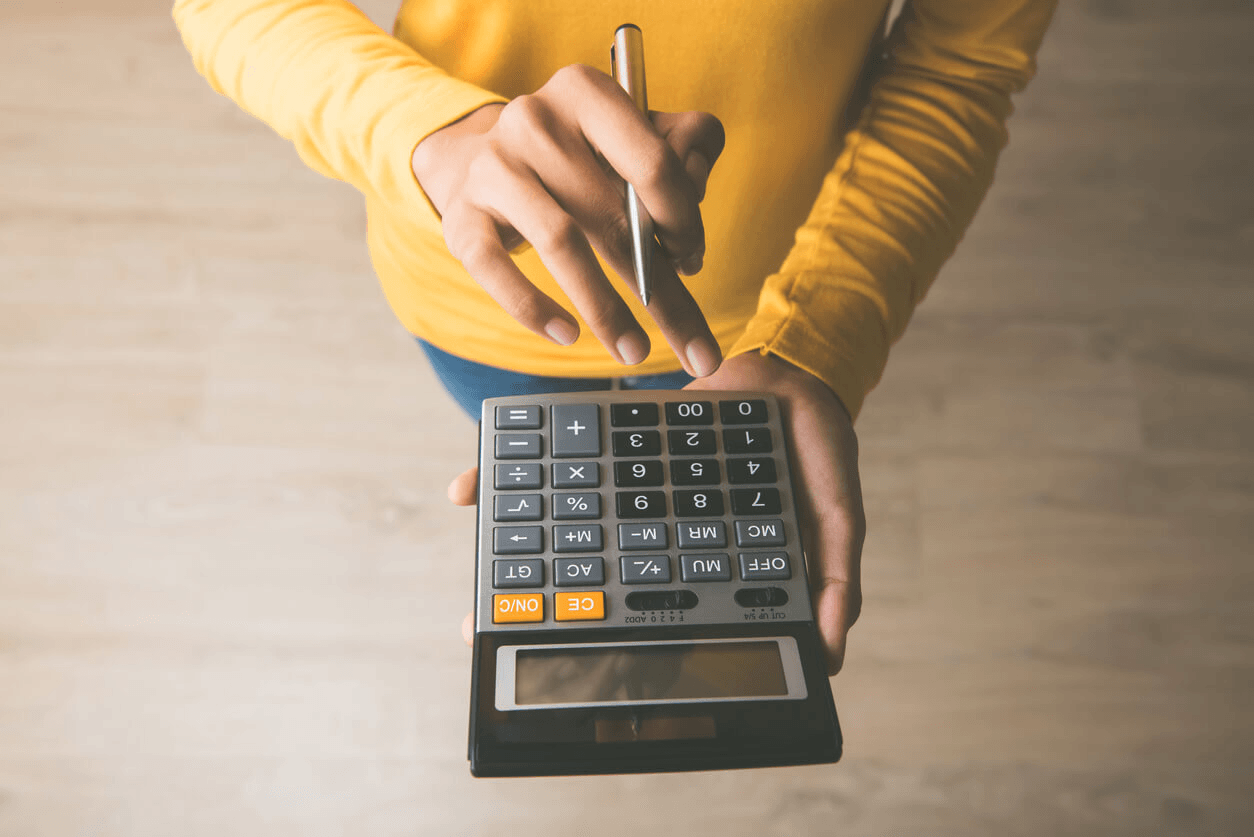Deposit when buying an apartment


Many buyers have heard that when buying an apartment sometimes need to make a deposit, but not everyone knows under what conditions and why it should be done. In addition, those who want to buy real estate often confuse the deposit with the advance payment. We tell you what a deposit is, how to make it, how much to pay, and other important information.
What is a deposit when buying an apartment
A deposit is an amount of money that is given by the buyer to the seller under the terms of a contract of sale. This money confirms the obligations and ensures the fulfillment of the contract. The concept of the deposit is clearly described in Article 570 of the Civil Code of Ukraine.
In the process of buying and selling a home, the deposit acts as a kind of "stabilizer" for both parties. The seller understands that the buyer has serious intentions, as evidenced by the transfer of a specific amount of money. The buyer thus books the purchase of the apartment and knows that it will not be sold to other people.
The deposit when buying an apartment is aimed at fulfilling the contract of sale and cannot exist without it. For this reason, the advance payment for the apartment cannot be considered a down payment.
The deposit in the process of legal registration of the contract of sale of real estate performs these functions:
confirms the stipulated obligations of both parties;
denotes the method of final settlement in the course of the operation;
ensures that each party complies with the terms.
Pros and cons of the deposit during the purchase of a home
The deposit, like other methods of securing obligations, has its own characteristics, which are important to consider before the transfer of money. Among the advantages of a deposit are:
convenience is an easy way to secure obligations that come out of the pre-contractual liability of buyer and seller;
return of the deposit - if this point is stipulated in the concluded contract, in case of which the deposit can be returned.
What are the disadvantages of a deposit:
the lack of a clear legal framework - different lawyers may interpret the law differently, so the recovery of a deposit in the double amount may be questionable, even if this point was spelled out in the contract;
confusion with advance and deposit - partly because of the flaw mentioned in the first paragraph, in court practice such concepts as advance and deposit are often confused, which affects the amount of return;
loss of money - if the deal is terminated, the perpetrator loses his or her money.
When to pay a deposit when buying an apartment
As practice shows, it is quite difficult to settle an intermediate stage in the process of buying and selling real estate, when the seller and the buyer have reached an understanding, but have not finished agreeing on additional points. In order not to lose the preliminary agreement, the parties most often resort to money.
The deposit for an apartment serves as monetary security that the buyer or seller will not change his or her mind about the purchase agreement. In what cases do you pay a deposit when buying an apartment?
at the request of the buyer - he knows exactly what he wants to buy, but does not yet have the full amount to conclude the transaction. In order not to miss this option, the buyer makes an offer to give a deposit and collect the rest of the amount within an agreed period of time;
at the request of the seller - the buyer wants to buy the property, but it is not yet ready for sale, for example, due to the lack of certain documents. If the seller does not want to lose the client, he can ask for a deposit and assure that he will prepare all the necessary papers within a certain period of time.
What is the difference between a down payment and a deposit when buying an apartment?
When buying an apartment or a private house, it is important to understand that a deposit and an advance payment are different concepts. Each of these payments has its own legal nuances, which are well understood by experienced lawyers and notaries. It's not uncommon for buyers and sellers to confuse an advance payment and a deposit. The owner may talk about the transfer of the deposit, while the buyer will mean the advance payment.
Since many people are confused about the names and legal definitions, in verbal discussion of the terms of the real estate purchase and sale transaction, these terms have come to be used equally. More often than not, when the parties start talking about a deposit or an advance payment, they are actually discussing a security payment or a certain amount that will act as a guarantee that the terms of the contract for the purchase and sale of the apartment will be met.
If we talk about the preliminary contract for the sale of housing, the main difference between the deposit and the advance payment is that the former cannot be transferred at all, since it contradicts such a concept as a deposit. It is only possible to give an advance payment or a security deposit, as the conditions of the deal are still under negotiation and there is no basic contract for the sale of real estate. Everything is fixed in the preliminary agreement.
In other cases, an advance payment and a deposit are easily confused. But from a legal point of view they are different contracts.
So, the difference between an advance payment and a deposit when buying an apartment is that:
the advance is refundable - even if the deal falls through, the buyer can always get his money back;
the deposit is not refundable - the buyer does not get the deposit back if he changed his mind to buy the apartment for any reason, which is beneficial to the seller, but if it was the seller who changed his mind to sign the deal, he will have to return the deposit to the client in the double amount.
It is important to separate these two concepts, so as not to be suddenly without money, if it did not work to conclude a sale.
How much is the deposit when buying an apartment
The amount of the deposit when concluding a real estate purchase and sale transaction cannot be found in any legislative act. But real estate experts advise to set this amount as a percentage of the agreed value of the property. Most often the amount of the deposit is 5-10% of the value of the apartment. Although there are cases where the seller and the buyer have agreed to a deposit of 50%.
There are also those who agree on a fixed amount. To confirm their intentions, the buyer can give the owner of the apartment the amount he is comfortable with.
The seller should not spend the deposit until the deal is completely done, although that is left up to the seller's discretion. If anything, it will be easier to get that amount back if the deal does not go through the seller's fault.
How to make a deposit when buying an apartment
In order for the deposit for the property to perform its main function, that is, to preserve the intentions of the parties to the sale of housing, and not to be lost in a disputed situation, it is necessary to formalize this stage correctly. Documenting the transfer of money from one party to the other plays a crucial role here. Without drawing up a confirming document, the buyer is not recommended to transfer the agreed amount to anyone.
In order to safely pay a deposit for the apartment you like, it is important to mention these intentions in the preliminary or main contract of sale. What should be specified in the document:
who and to whom passes the amount of money in the form of a deposit;
for which a deposit is paid;
the amount of the transferred deposit;
the obligations and responsibilities of each party;
penalties;
the terms of the transaction.
It is important to notarize the executed document. Only then can the agreement be the basis for a case if you have to go to court for any reason.
There are two more important nuances when making a deposit during the purchase of real estate. First - the seller must write a receipt, which states that he received a specific amount from the potential buyer. The second - the amount of the deposit is included in the total price of the apartment, that is, when the subsequent transfer of the remaining amount of the previously made funds are deducted.
Can I get my deposit back if the deal didn't go through?
As mentioned above, the deposit is often confused with the advance payment. But the main difference between these payments is that the advance payment is returned to the buyer in the case of a failed transaction, regardless of who has changed his mind. Whereas the deposit will not be returned in all situations.
If the deal did not go through due to the buyer's fault, there is no way to get the deposit back. In the case where the deal was cancelled because of the seller, he must return the deposit to the client, plus double the amount.
The only way to return the deposit to the buyer, if he has changed his mind to conclude a deal, under a preliminary agreement is to go to court. You will only be able to defend your rights in court if you have a properly executed and notarized agreement and receipt. The contract should be made by a qualified lawyer. He can also provide you with a standard sample of receipts.
So, it is important to pass the deposit with the signing of the preliminary or main contract. Without these documents, the down payment for the apartment is not considered a down payment, but an advance payment. That is why it is important to approach this question properly, with the support of an experienced real estate specialist. If you are planning to buy an apartment, and you do not want to stay without a deposit, and without a home, you can contact a realtor in the real estate agency "Mayak". Experienced agents will not only formalize the transfer of money, but also properly conduct the transaction and satisfy both sides, so that everything went without nerves and hysterics.



